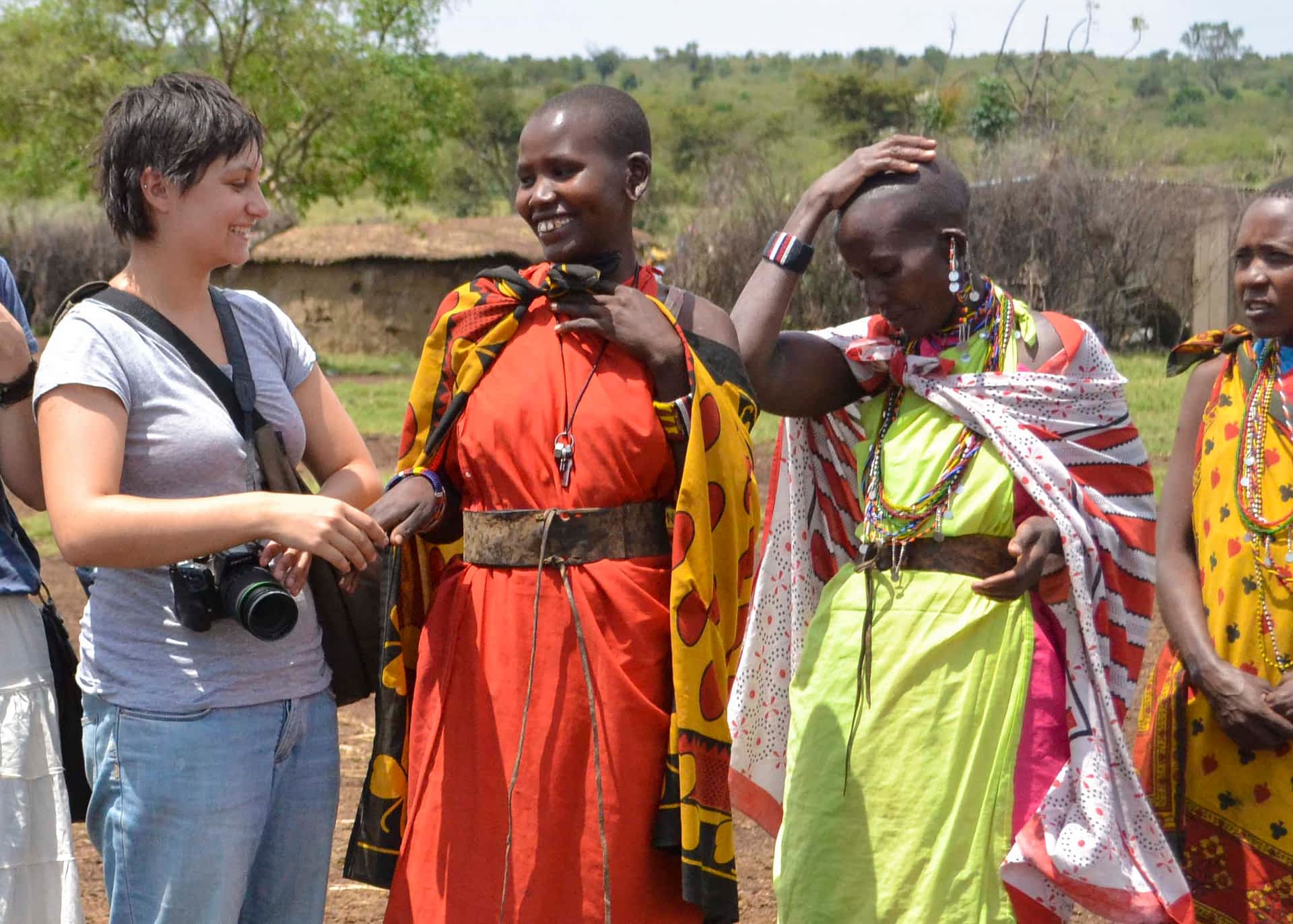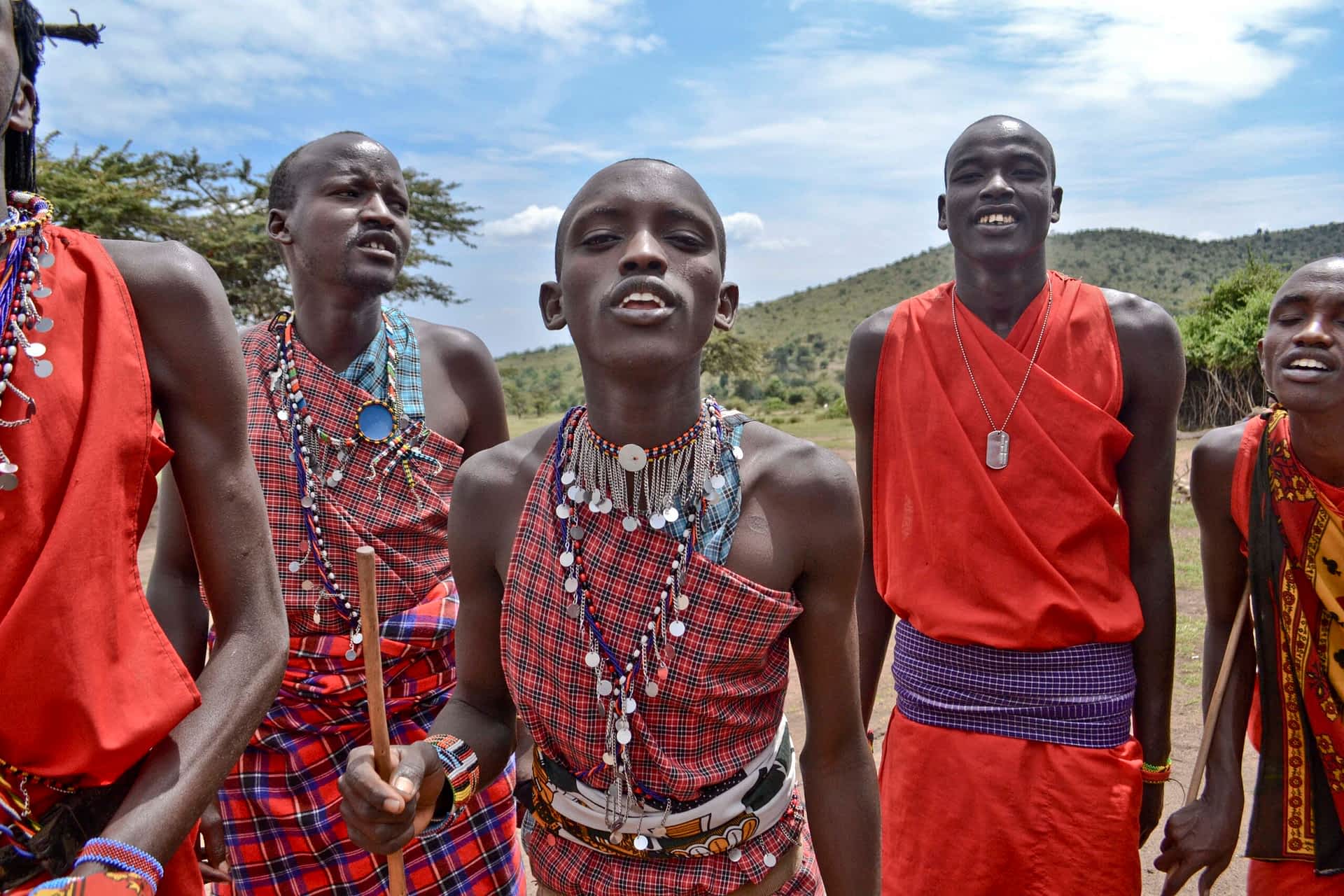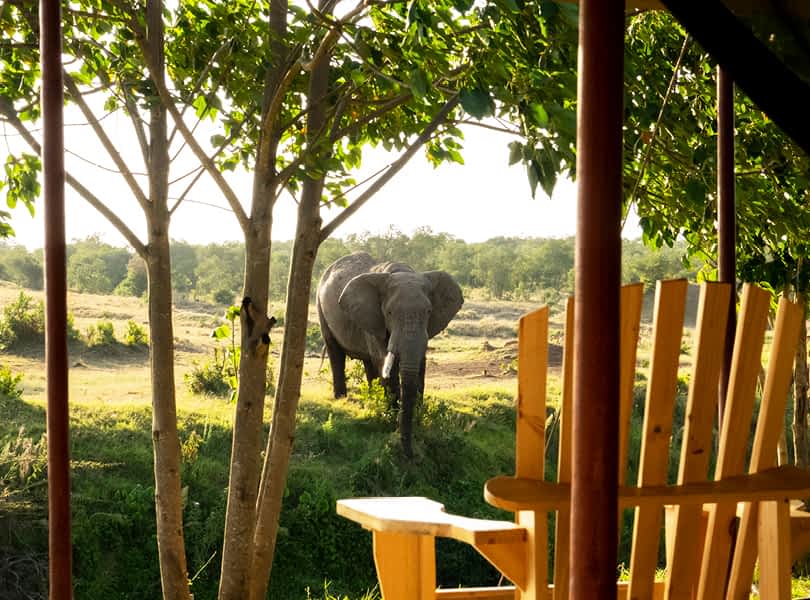Kenya is a very diverse country not only in wildlife and landscapes but also in culture there are over forty different tribes.
Maasai tribe are one of the few people in the modern world who have retained most of their traditional culture. Known for their striking, bright clothing and elaborate beaded jewelry.
The Maasai live in southern Kenya and northern Tanzania, historically, they have been semi-nomadic pastoralists. These days however due to the governments allocating land to game reserves and national parks; the Maasai culture has become less nomadic, and more sedentary.
There is a hierarchy, each individual has their place within the community. male elders are in charge and decide most major matters, including arranging marriages. A man may have multiple wives
Women are responsible, for collecting water, and firewood, milking the cows, cooking, and looking after the home and children. While mostly young men and boys are responsible for protecting the cattle from predators and herding them to water and pasture.
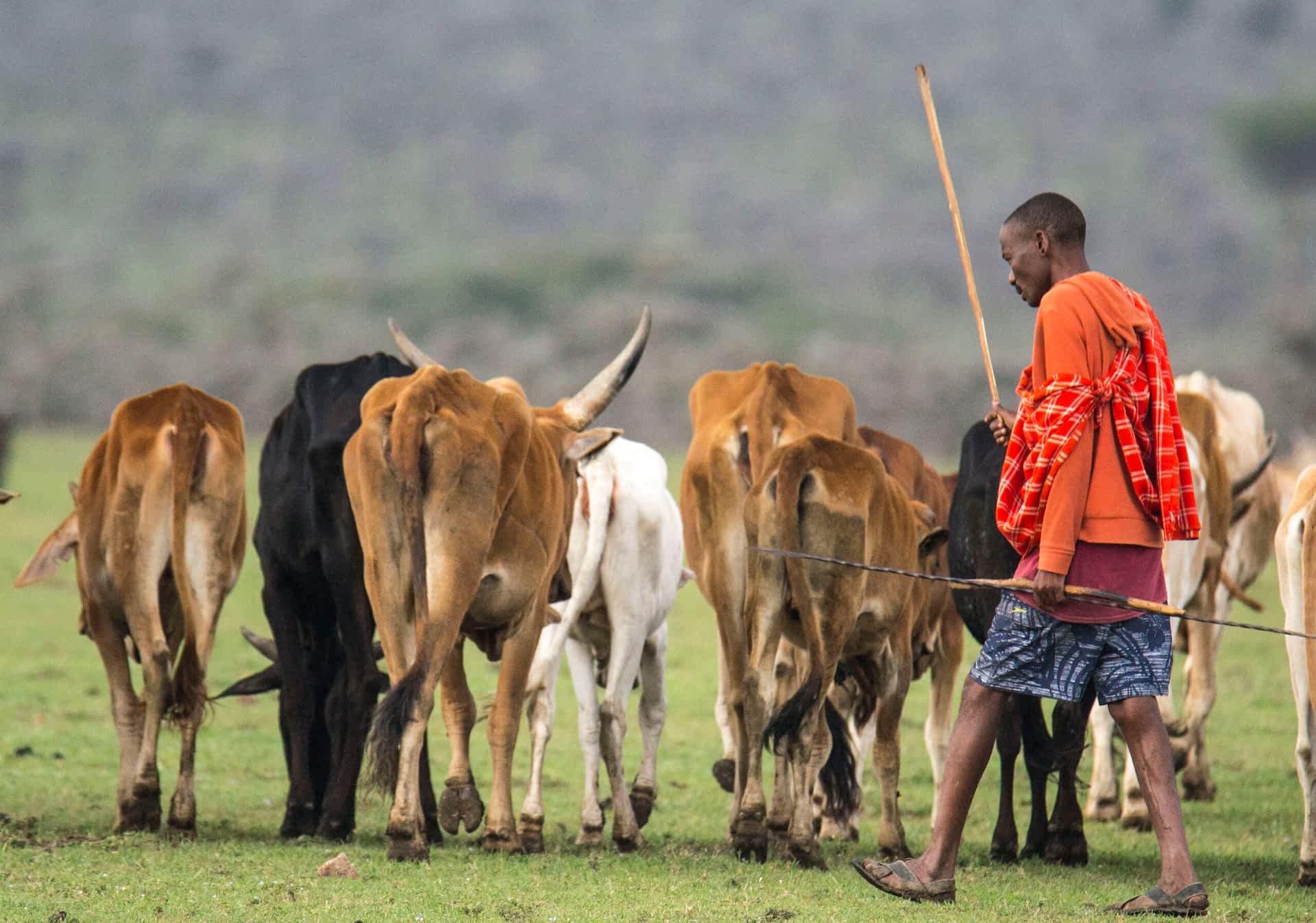
Style
Both Maasai men and women wrap colorful sheets/blankets called shukas loosely around their bodies along with elaborate beaded necklaces, collars, bracelets, headdresses, and even decorations for sticks and weapons. Beadwork is done by women. The jewelry may also have particular meanings and denote identity and status. They wear sandals made out of vehicle Tyres.
Their signature style has been emulated by popular fashion designers, such as Louis Vuitton.
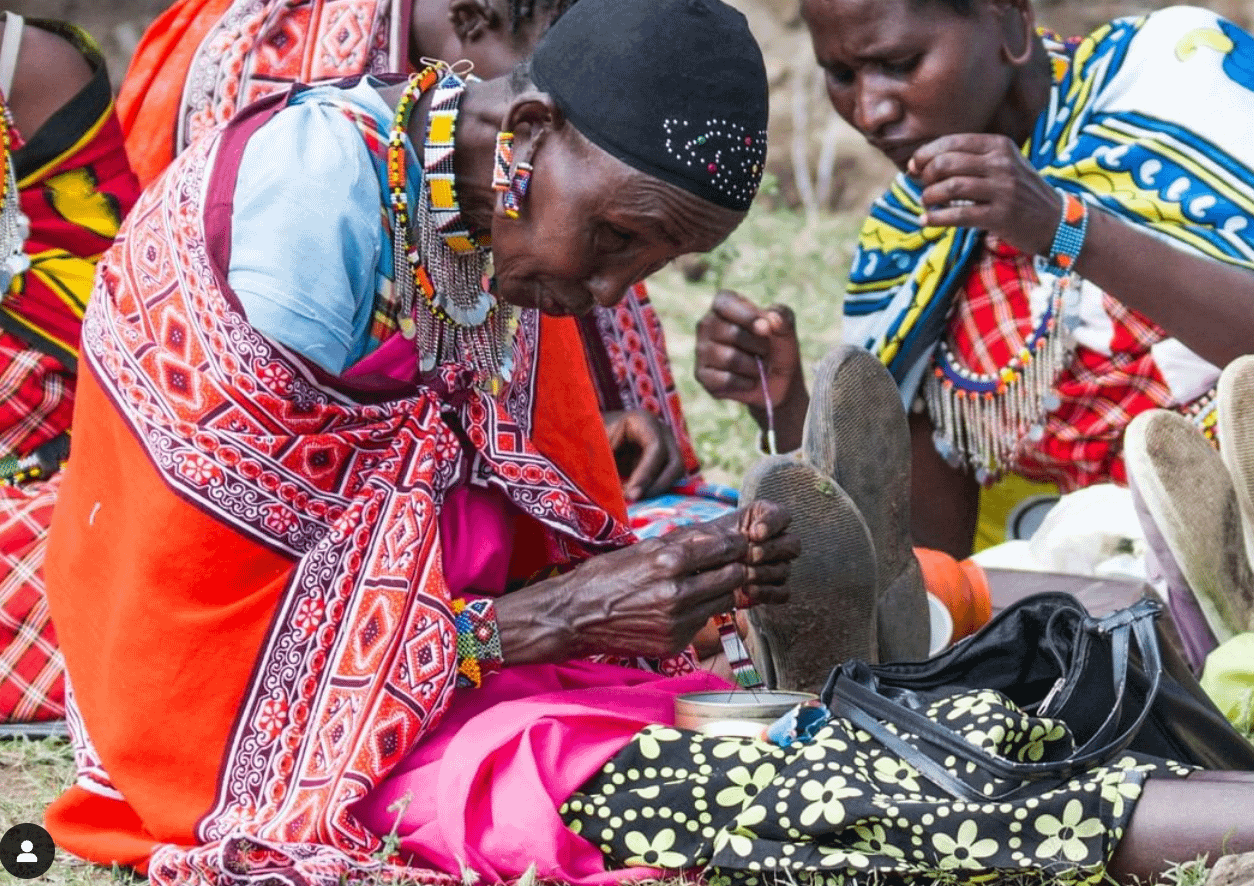
Home
The typical Maasai village is called a Boma and has a circular configuration. The house is called an Inkajijik, it’s built by women and is usually circular or oval-shaped. and made of mud, sticks, grass, cow dung, and urine (sometimes human urine) The boma also houses animal pens and is surrounded by an acacia thorn bush fence built by men to protect from wild predators.
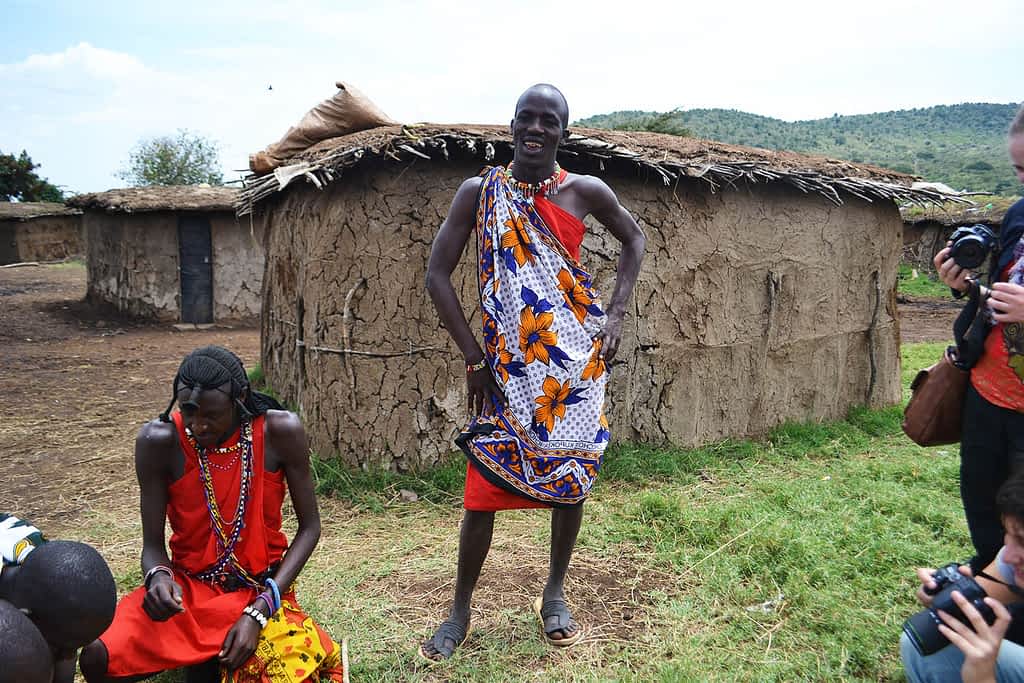
Meeting the Maasai is a not-to-be-missed when visiting Kenya. You can visit a Maasai village to experience their culture, traditions, and lifestyle. For deeper immersion, when you stay in lodges or camps in the private conservancies which are owned by the Maasai who lease out their land, the staff will most likely be from the Maasai community.
